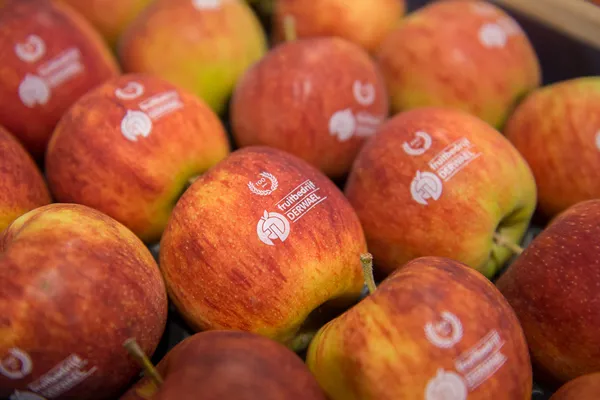If we are not careful, the pear cultivation situation will end up the same as apples. That is according to Tony Derwael of Bel'Export. "This year's Belgian apple market situation is significantly better than last year. That's because growers in several European countries have switched, en masse, to pear production," he begins.
The trader admits he finds it challenging to look too far ahead in the sector; much can change very quickly. "Still, the situation is fairly worrisome because, in Belgium and the Netherlands, pear acreage has doubled in the last 20 years. That's at apples' expense."
"That acreage has more than halved, and that 1,000 hectares - totaling 20% lower volume - that's been uprooted is having a clear effect. That's why prices have improved so much. I'd even almost dare say there may soon be an apple shortage. That has to happen to maintain good prices," says Tony.

"The pear situation is the complete opposite. A few years ago, I warned growers to be careful because we were moving in the same direction as apples. Add Poland investing more and more in pear production to that, and you might get similar bottom prices as with apples."
Tony points to Italy's failed crops as to why it is so hard to predict the fruit sector's distant future. "That's put the troubling situation on the back burner for a while, and my prediction was wrong. Who would have expected Italy to have such major problems with insects and temperatures? That suddenly opened up more room in the market, and people are even currently earning well. It remains a volatile sector where making long-term forecasts is tricky. But, should Italy solve its issues, which I expect it will, we must be genuinely cautious," he says.
Red pears
"Pear consumption has been declining for years. We must consider that, too. If inter-European volumes weren't lacking, we'd not get it all sold on national markets. Then we must start looking at new markets, but I think niche markets, like red pears, offer more potential. There's plenty of interest in Asia. Conference pears aren't so popular there, but there are many expansion opportunities for red pears. Those are scenarios the sector must consider, and many people within it are already working on that."
Prices are recovering, but costs are higher, too
Considering the current season's situation, the trader remains relatively optimistic. "In apples, we've worked below cost price for the last two years. In pears, we were working around that until midway through the last marketing season. Fortunately, those prices recovered quite well this year. For both fruits, those have doubled in the smaller 50-55 and 55-60 sizes. The larger ones' prices are 30% higher. Those mainly brought in money last year, but most growers had small pears, which made them no money," Tony explains.
"Compared to what we expected in August, the pears are somewhat disappointing. The apples, on the other hand, aren't too bad. The scab problem seems less of an issue than we'd thought, and the apples appear to be keeping well. It's generally a better situation, but it's not all good news. Prices may be better, but cost prices also keep rising."
"One mustn't forget that. That lies particularly in wages, which have skyrocketed. That continues to create a tricky situation. Consumers are looking for cheaper products because of inflation, supermarkets are under pressure, and producers want to earn more. Where do we as traders fall into that calculation?" Tony wonders in conclusion.
For more information:
Tony Derwael
Bel'Export
2 Nerem Street
3840, Borgloon, BE
Tel +32 (0) 124 40 551
Email: [email protected]
Website: www.belexport.com










